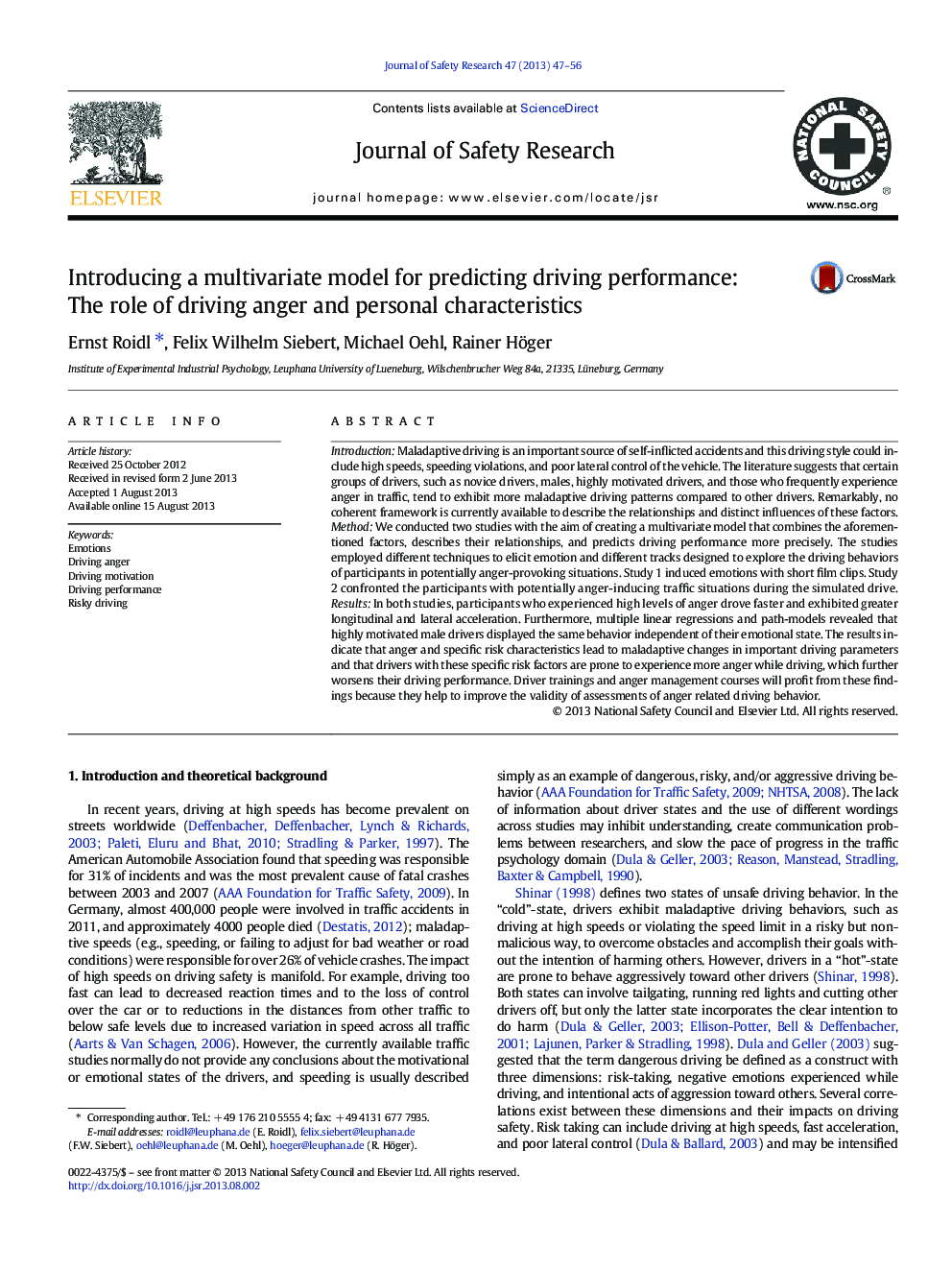| کد مقاله | کد نشریه | سال انتشار | مقاله انگلیسی | نسخه تمام متن |
|---|---|---|---|---|
| 587440 | 1453313 | 2013 | 10 صفحه PDF | دانلود رایگان |
• Highly motivated males show maladaptive driving patterns regardless of their anger state.
• Even low levels of driving anger lead to a decline of good driving performance.
• Driving motivation (but not gender or driving experience) is related to driving anger.
IntroductionMaladaptive driving is an important source of self-inflicted accidents and this driving style could include high speeds, speeding violations, and poor lateral control of the vehicle. The literature suggests that certain groups of drivers, such as novice drivers, males, highly motivated drivers, and those who frequently experience anger in traffic, tend to exhibit more maladaptive driving patterns compared to other drivers. Remarkably, no coherent framework is currently available to describe the relationships and distinct influences of these factors.MethodWe conducted two studies with the aim of creating a multivariate model that combines the aforementioned factors, describes their relationships, and predicts driving performance more precisely. The studies employed different techniques to elicit emotion and different tracks designed to explore the driving behaviors of participants in potentially anger-provoking situations. Study 1 induced emotions with short film clips. Study 2 confronted the participants with potentially anger-inducing traffic situations during the simulated drive.ResultsIn both studies, participants who experienced high levels of anger drove faster and exhibited greater longitudinal and lateral acceleration. Furthermore, multiple linear regressions and path-models revealed that highly motivated male drivers displayed the same behavior independent of their emotional state. The results indicate that anger and specific risk characteristics lead to maladaptive changes in important driving parameters and that drivers with these specific risk factors are prone to experience more anger while driving, which further worsens their driving performance. Driver trainings and anger management courses will profit from these findings because they help to improve the validity of assessments of anger related driving behavior.
Journal: Journal of Safety Research - Volume 47, December 2013, Pages 47–56
